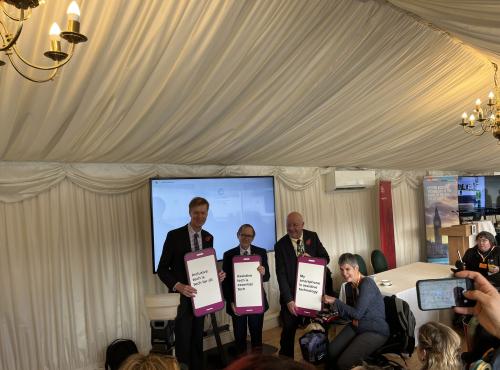New policy on housing standards must be coupled with improved practice to ensure good health
Housing standards are a welcome focus in the King’s Speech, but must be supported with clear guidance, education and enforcement to ensure good air quality and health in homes.
Yesterday’s King’s Speech introduced the latest of the new Labour government’s commitments to improve the state and supply of Britain’s housing.
Amongst 40 new bills introduced yesterday, the Government also presented a Renters’ Rights Bill – a new-look version of the previous government’s much contested and amended, and ultimately unratified, Renters (Reform) Bill.
In this rush to deliver on their mandate of change, the Government must make the decency of housing a careful consideration if it is to achieve the new Health Secretary Wes Streeting’s vision of preventative healthcare.
Energy, health and safety in homes
Preventative health must begin with addressing the sources of sickness. Britons spend the majority of our time at home, where we are exposed to a range of health risks from common products and heating appliances. Their effects are not benign, however – household air pollutants are associated with a long list of health issues, and billions in health and social costs each year.
By locking in heat, retrofits and more energy efficient newbuilds also risk locking in household air pollution; across all tenures, balanced ventilation is important to avoid creating new health risks such as a build-up of mould.
Legislating preventative health at home: powers, capacity and enforcement
The Government must ensure good health and safety is prioritised and practiced in new housing measures.
The new Renters’ Rights Bill is set to legally apply the Decent Homes Standard (DHS), that sets out health and safety standards, to private rentals, but decency remains an issue in social housing, to which the DHS has long legally applied – 11% of social homes are still classified as non-decent, compared with around 23% of private rentals.
To remedy extant hazards in social homes, the previous government introduced Awaab’s Law to set a legal timescale to rectify hazards in social homes, which Labour will extend to private rentals through the Renters’ Bill in tandem with strengthening local councils’ enforcement powers.
Stronger standards and greater powers are in principle welcome, but these must be coupled with proper guidance, education and support for the faculty of actors responsible for standards in homes, including housebuilders, surveyors, and council officers.
The DHS requires for homes to be free of category 1 (critical), not category 2 (less severe), hazards, but the distinction between the two categories has been criticised for being inexact, and so residents may be left exposed to serious risks to their health. There must be clear guidance and support for addressing all hazards.
New enforcement powers meanwhile can only take effect if councils have the capacity to address issues. Government must help the 45% of councils that have reported difficulties recruiting environmental health officers and ensure officers entering homes are trained to accurately assess hazards. Simple inspections of fossil fuel appliances for example may not provide an accurate picture of the level of risk of carbon monoxide poisoning – inspectors may require additional accreditation and regular training to run more accurate tests.
Greater enforcement capacity is also key to ensure new energy efficiency measures do not exacerbate the crisis of non-decency in homes. For past retrofits, energy suppliers were responsible for inspecting only 5% of homes for the quality of installation, and it is thought hundreds of thousands of retrofits have been hazardously installed. Councils will require support to ensure all builders are adhering to the Government’s Approved Document F, that sets out requirements for achieving good air quality through ventilation.
The new government has a welcome suite of proposals to improve housing standards, but to achieve a sea change in housing decency and health outcomes, ministers must focus on the on-the-ground implementation of standards.



